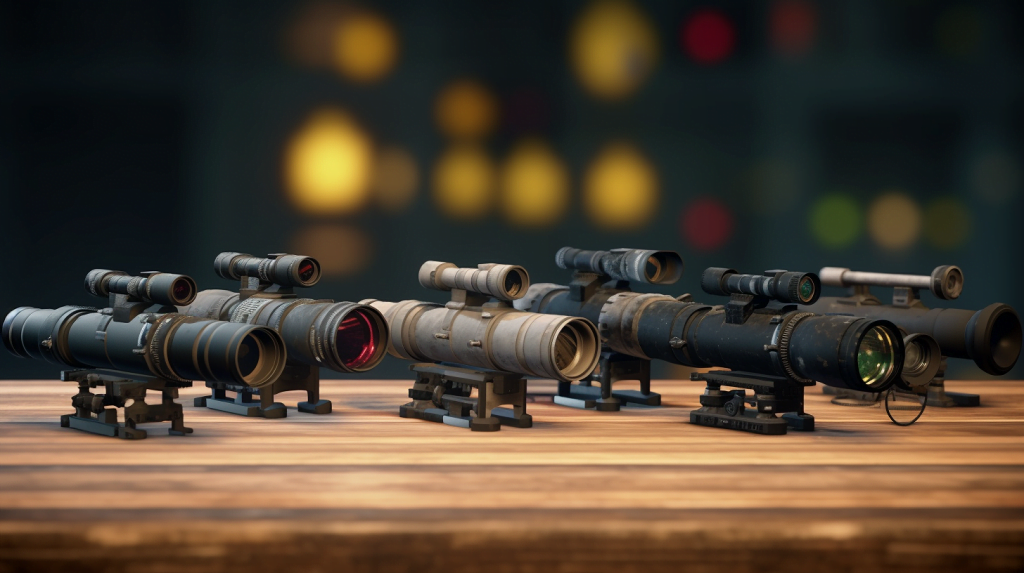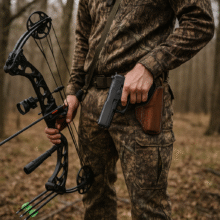How to choose the perfect rifle scope for your rifle

Table of Contents
Table of contents
The Role of a Rifle Scope
A perfect rifle scope is an essential piece of equipment that can significantly improve your shooting accuracy and overall experience. Whether you’re a hunter, target shooter, or a long-range shooting enthusiast, choosing the right scope for your rifle is crucial. In this article, we’ll discuss the factors you should consider when selecting a scope and offer tips for finding the perfect match for your needs.
Factors to Consider When Choosing a Rifle Scope
Magnification
The magnification of a scope is one of the most important factors to consider. Magnification determines the power of the scope and how much it can enlarge the image of your target. Low magnification scopes (e.g., 1-4x) are suitable for close-range shooting, while high magnification scopes (e.g., 6-24x) are ideal for long-range shooting. Determine your primary shooting distance and choose a scope with appropriate magnification.
Objective Lens Size
The size of the objective lens affects the amount of light that enters the scope, influencing image brightness and clarity. Larger objective lenses allow for more light transmission, resulting in brighter and clearer images. However, they also make the scope heavier and bulkier. Consider the balance between image quality and weight when choosing a scope with the right objective lens size.
Reticle Type
The reticle, or crosshair, is the aiming point within the scope. There are numerous reticle types available, including duplex, mildot, and BDC (bullet drop compensator). Each reticle type serves a specific purpose and caters to different shooting styles. Consider your shooting needs and preferences when selecting a reticle type.
Focal Plane
Rifle scopes can have either a first focal plane (FFP) or second focal plane (SFP) reticle. In FFP scopes, the reticle size changes with magnification, maintaining the same relationship to the target. In SFP scopes, the reticle size remains constant, regardless of magnification. FFP scopes are generally better for long-range shooting, while SFP scopes are more suitable for close to medium-range shooting.
Turret Adjustments
Turret adjustments allow you to zero your scope and make windage and elevation adjustments for accurate shooting. Choose a scope with reliable, precise, and easy-to-use turrets. Look for features like locking or zero-reset turrets, which can make it easier to make adjustments in the field.
Durability and Quality
A good rifle scope should be durable and able to withstand harsh conditions. Look for scopes that are waterproof, fog-proof, and shockproof to ensure reliable performance in various environments. Additionally, consider the overall build quality, materials, and lens coatings, as these factors can influence the scope’s performance and longevity.
Trying Out Different Scopes
Test Before You Buy
Before committing to a rifle scope, it’s a good idea to test out different models to find the one that suits your needs best. Visit local shooting ranges or stores that allow you to try out various scopes to get a feel for their performance and handling. This hands-on experience will help you make a more informed decision when purchasing a scope.
Conclusion
Choosing the right scope for your rifle is essential for optimizing your shooting experience and accuracy. By considering the factors discussed in this article, such as magnification, objective lens size, reticle type, focal plane, turret adjustments, and durability, you’ll be better equipped to select the perfect rifle scope for your needs. Don’t forget to test out different models before making a decision, as hands-on experience can provide valuable insights into what works best for you. Happy shooting!







